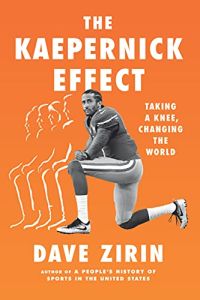
The Kaepernick Effect
Taking a Knee, Changing the World
Recommendation
National Football League quarterback Colin Kaepernick couldn’t have foreseen how much his decision to kneel during The Star Spangled Banner would upend the United States. The then-San Francisco 49er knelt down on one knee prior to the national anthem at a preseason game in 2016 to protest racism and police brutality. He paid a dear price as NFL team owners effectively banned him from playing. His singular gesture established the foundation of a sweeping movement that forced America to confront racism. Dave Zirin discusses the backlash and fallout when other Black athletes and coaches replicated Kaepernick's actions. Zirin’s outstanding work explores sports as a vehicle for social and political reform.
Summary
About the Author
Dave Zirin, the first sports editor of The Nation and a columnist for The Progressive, hosts the “Edge of Sports” podcast. Utne magazine named him one of the “50 Visionaries Who Are Changing Our World.” Zirin's other books include: People’s History of Sports in the United States: 250 Years of Politics, Protest, People, and Play; Bad Sports: How Owners Are Ruining the Games We Love; and Jim Brown: Last Man Standing.







Comment on this summary